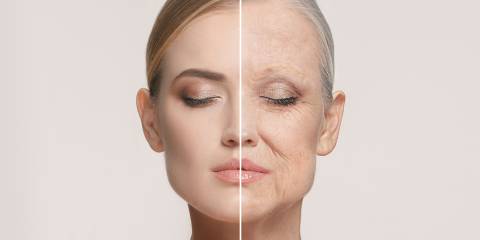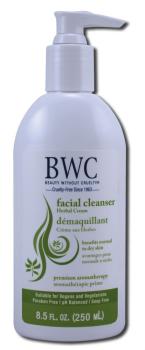Collagen is a key component of the skin’s structure, responsible for keeping it firm and elastic. As we age, our bodies begin to slow the production of collagen, resulting in fine lines and wrinkles, and decreased moisture.
Eating a healthy diet, staying hydrated, and exercising regularly can help slow the process of collagen loss and dryness. Read on to learn how collagen supplements can play a part in maintaining healthy, youthful skin.
How Collagen Can Help Protect Skin
-
Counteract Dryness with Collagen
Research indicates that collagen supplements can help counteract the natural signs of aging. A group of healthy women with visible signs of aging were given a daily collagen supplement for 12 weeks.
At the end of the study, their skin had improved dramatically, with fewer visible lines and wrinkles, and a significant decrease in dryness and scaling.
Researchers concluded that collagen supplements helped to increase collagen production.
-
Battle Fine Lines and Wrinkles
To reduce skin wrinkles, Alexis Parcells, MD, recommends 2.5 daily grams of hydrolyzed collagen type I or a mixture of types I and II for demonstrated benefits after eight to 12 weeks.
In a large, double-blind, placebo-controlled study, women who took a daily dose of 2.5 grams of hydrolyzed collagen experienced a 20 percent reduction in crow’s feet after eight weeks.
Another outcome of the supplementation was that the women’s own production of procollagen—the precursor to collagen—increased by 65 percent.
-
Collagen Boosts Nail Growth
A recent study revealed that daily oral supplementation with collagen peptides improved symptoms of brittle nail syndrome (nails that are rough, ragged, and peeling).
Participants saw their nail growth rate boosted by 12 percent, and a 42 percent decrease in the frequency of broken nails after supplementation.
A whopping 88 percent continued to see improvements four weeks after the end of the treatment period.
-
Collagen Can Improve Elasticity
A 2017 pilot study determined that oral intake of a collagen supplement derived from eggshells can improve skin elasticity by 12 percent after five weeks of supplementation.
All study participants reported satisfaction with facial skin softness—and a majority were satisfied with facial skin hydration, body skin hydration, and effects on hair—at the end of 50 days of treatment.
-
Peptides: Skin Deep
Several studies have shown that oral supplementation with collagen boosts collagen peptide levels in the blood, and now a new study confirms that those peptides show up in the skin, as well.
Using a mouse model, researchers were able to observe collagen peptides in blood plasma and skin and determined that, “. . . functional peptides can be transferred to the skin by dietary supplements of collagen.”





